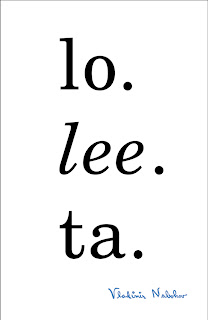It is difficult to sum up my feelings after reading Vladimir Nabokov’s Lolita. I will attempt nonetheless. It is after all a novel that is difficult to conceive, tough to write and impossible to be written like the way it was written by my dear Vladimir. What a piece of art the novel has turned out to be. I remember to have read a book called ‘On the Sublime’ somewhere during my under-graduate days and found the world sublime ridiculously abstract and gratuitously meaningful. I was wrong. I am wrong. Lolita is a sublime piece of art. It’s a novel that combines, much like Keats’ best poems and Shakespeare’s best plays, beauty with something unexplainable, something indescribable, something eternal like the universe with all its suns and moons and sky.
It is, sadly, a misunderstood book, for those who haven’t
read it and for those who have heard about it. Lolita, they say, is a story of a paedophile and a pervert – in
short- a sex story- a porn stuff. Most of the people in the world who can read,
read porn, and they have not read it. Lolita is not porn. Lolita is a book of a
lifetime.
Story of Lolita is sad, funny, unpretentious and
unapologetic. It is a confession of middle-aged man Humbert Humbert, a
pseudonym of a pseudonym of a pseudonym, of his obsession with 12-year old ‘nymphet’
Dolorous Haze, his very own Lolita. His obsession is sexual and partly a
fulfilment of his memory of his childhood sweetheart who had died before their
love could bloom. Humbert is a pervert and Humbert is a poet. Humbert is a bastard
and Humbert is a critique of the popular American pop culture that fills the
young mind with crap. Humbert is a "detestable, abominable, criminal
fraud" and Humbert is, well, just Humbert.
The first sexual act between him and his nymphet is initiated
by Lolita who has already experienced something like this in her summer camp. Her
mother and his wife safely dead both go on to live an unrestrained life. The
following days become a rollercoaster for Humbert. A life from ‘pure joy’ to
‘unrestrained jealousy’, hopping from one hotel to another Humbert goes on to
celebrate and condemn the affectations of a growing up girl. The years roll on
and finally Lolita escapes, well not to safety, but to one of her short lived
teenage revelry. And when Humbert finally meets her after two years she is a
17-year old heavily pregnant wife. Subsequently Humbert goes off to murder
Clare Quilty. A hilarious account of the crime inflates the entire reason
behind the revenge.
Lolita is
Humbert’s confession. Written in an elaborate language, full of pun and quote
and aphorism, fusing the coming and poetic, this confession gives rise to
exceptional ambiguity. How far can we trust the narrator? He is a mad man who
has had numerous visits to mental asylum and takes unrestrained delight in
fooling the psychiatrists. This mad narrator is clever enough to pose as an
intellectual and pass insightful comments about the society. This pathological
narrator, who may not allow any character to exist beyond his own imagination,
gives in to tenderness and guilt when he tells us that his paedophilic love for
Lolita, his Dolly, might have ruined her personality and subsequently her
understanding of being ‘normal’.
Nabokov employs all the stock narrative technique, from contrived
co-incidences and role play by the characters to designed clues that may or may
not lead a reader to any definite point. There is no specific reason or logic
behind the entire narrative and there are infinite reasons why Nabokov wrote
this novel. The last lines of Lolita are ‘I am thinking of aurochs and angels,
the secret of durable pigments, prophetic sonnets, the refuge of art. And this
is the only immortality you and I may share, my Lolita’. Is it to serve art
that Nabokov has written this book? May be (may be is a good word while trying
to deal with this book) for the shake of art itself.
Lolita is one of
the finest literary achievements, in the league of Roberto Bolano’s Savage Detective, Gabriel Garcia Marquez’s
One Hundred Years of Solitude and Salman
Rushdie’s Midnight Children, just to
name a few. While the three books I mention here have completely different
themes and occasions (considering the fact that art is a product of occasion),
Nabokov’s Lolita is an indifferent
product. The common element among these is their extraordinary literary merit.
All these break barriers (including the traditionally possible employment) of
the language. Even in their translated form Marquez and Bolano’s works can
stand on their own in their narrative technique. Rushdie and Nabokov, writing
in their adopted language, fork new path, vast and intricate, and we are glad
to lose ourselves on that path.











No comments:
Post a Comment